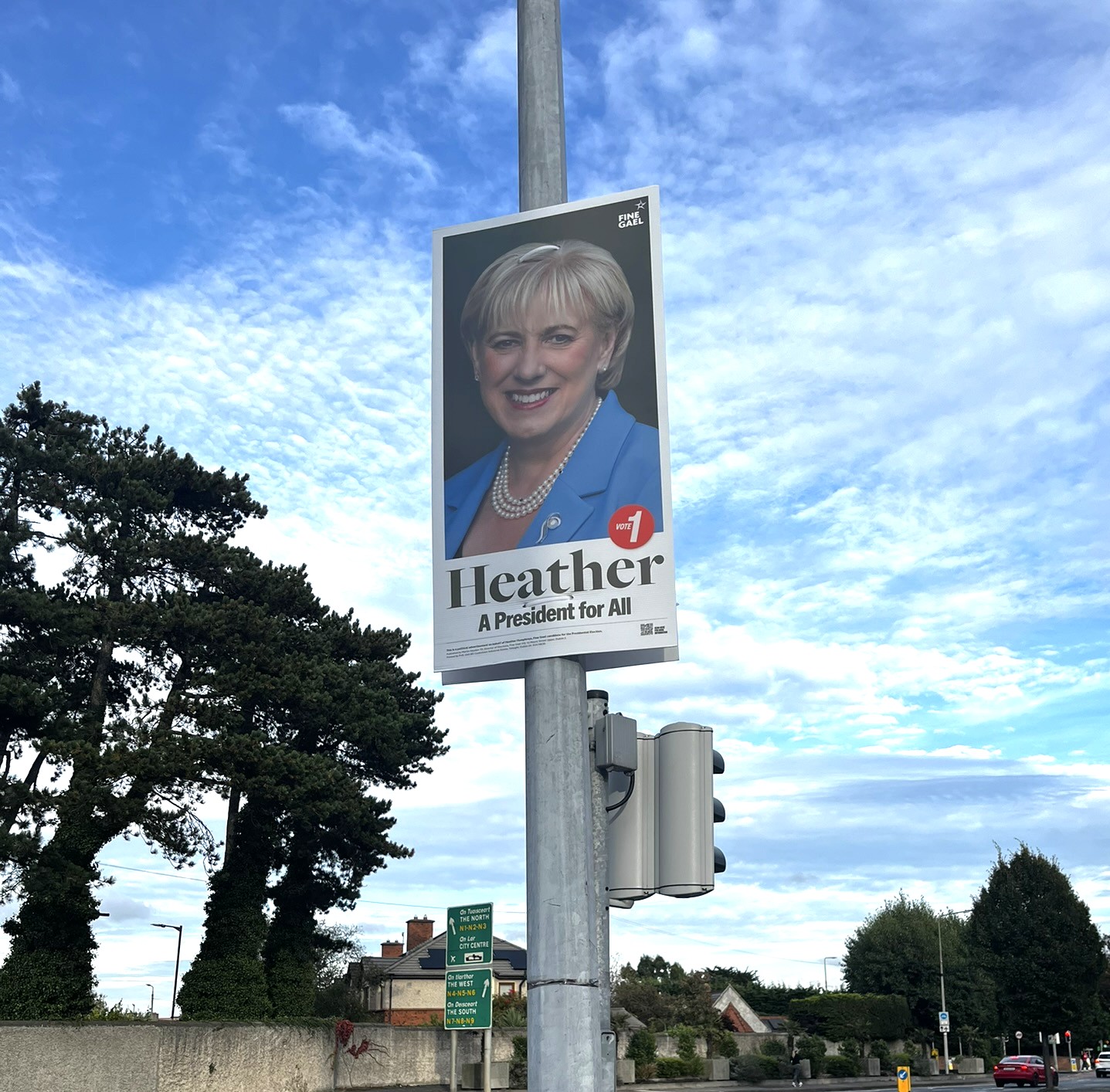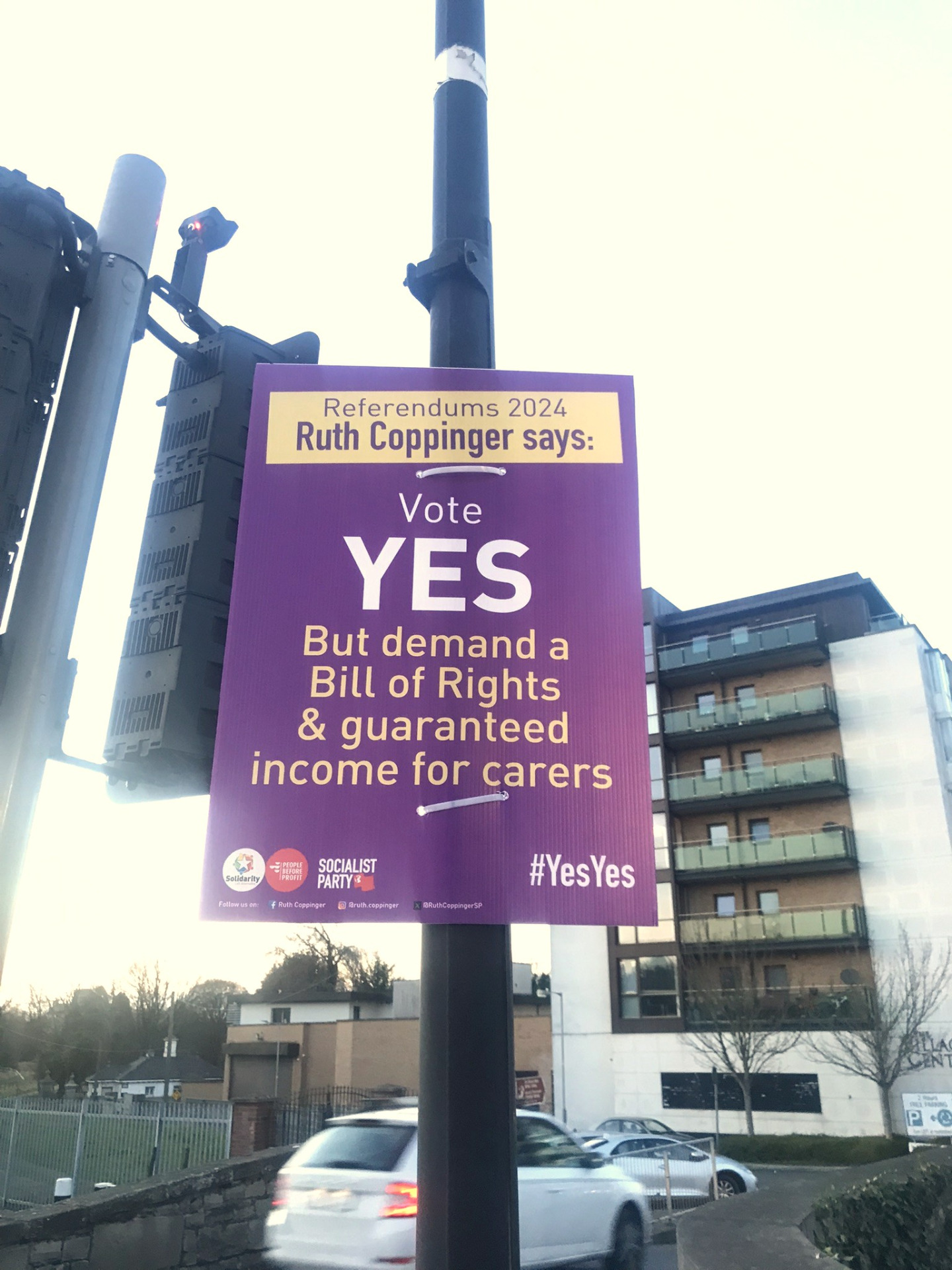Heather Humphreys and the disability "reform" proposals
On April 12th, it was announced that the green paper was scrapped.
They experienced an absolute political failure, what Enda Kenny would have called a 'double wallop' from the electorate in the referendum campaigns, particularly the one on disability care. ... It wasn't that she took on board feedback. They did a U-turn, they scrapped it."
Irish Examiner, 4 September 2025
The Green Paper on Disability Reform was launched by the Department of Social Protection on 20th September 2023. The formal consultation process was initially extended to July 31st 2024. Irish disability organisations had no input into the Green Paper in advance of its publication. The UN Convention on the Rights of Persons with Disabilities (CRPD), was excluded from the Green Paper. Articles 27 (work and employment) and 28 (adequate standard of living) of the UN Convention are vital for employment protection.
The 2023 Green paper proposed a three-tiered system for disability payments. These were to be based on a person's ability to work as well as the nature of their disability, with medical assessments. The social welfare rates proposed in the Green Paper were far below the standard poverty line and the Minimum Essential Standard of Living. Currently, there is no requirement for people receiving disability payments to engage with employment services. The Green Paper proposed that people assessed as 'Tier 3' would be 'required' to engage with Intreo and take up offers of employment and training.
Up to 50% of existing social protection recipients would be assessed as fit for work. This was a step towards the 'workfare' system in Britain. There, individuals subject to workfare must work in return for their welfare payments or risk termination. Ireland ranks 24th out of the EU 27 member states for disability poverty rates. 1 in 5 disabled people who are unable to work due to long-standing health problems live in consistent poverty. 1 in 2 disabled people (44.3%) live in deprivation, compared to the Irish national average of 17.7%. This is the highest poverty rate of all economic groupings.

Senator Tom Clonan stated that Presidential Candidate Heather Humphreys had "very strongly pushed" for the Government proposal for tiered welfare support when social protection Minister under the Varadkar cabinet in 2023. Mr. Clonan described the Green Paper as a "cut and paste" of a UK workfare instrument, the workplace capacity assessment. When enacted, 250,000 Irish recipients of disability allowance would then be medically examined every five years. Senator Clonan was critical of proposals in the document requiring disabled people to be medically assessed to see which tier of disability payment they would be entitled.
Irish disability organisations had no input into the Green Paper in advance of its publication... This was a step towards the 'workfare' system in Britain. There, individuals subject to workfare must work in return for their welfare payments or risk termination.
Humphries had made it "absolutely clear" in a meeting with Mr. Clonan in 2023 that there would be no changes to the green paper on disability reform and his suggestions would not be taken on board.

On March 9th 2024, the referendum on the proposed 40th amendment of the constitution, which sought to promote the role of the family in the care of people with disabilities as opposed to that of the State, was defeated by an even higher margin than the Family referendum. The result was a 73.9% No vote and a 26.1% Yes vote and was rejected in all 39 constituencies. It was the highest ever No vote percentage in an Irish referendum. Heather Humphreys was Fine Gael's director of elections seeking a Yes vote.
One month later, the U-turn on the green paper occurred after Simon Harris became Taoiseach on April 9th 2024, replacing Leo Varadkar, who resigned previously. Ms Humphreys' department had planned to keep consulting on the proposals until July 2024. But when Simon Harris took over as Taoiseach, the process was cut short, and was abruptly shelved in April 2024.
Fine Gael abandoned the Green Paper due to the referendum defeat, not because of the feedback of disabled people.
